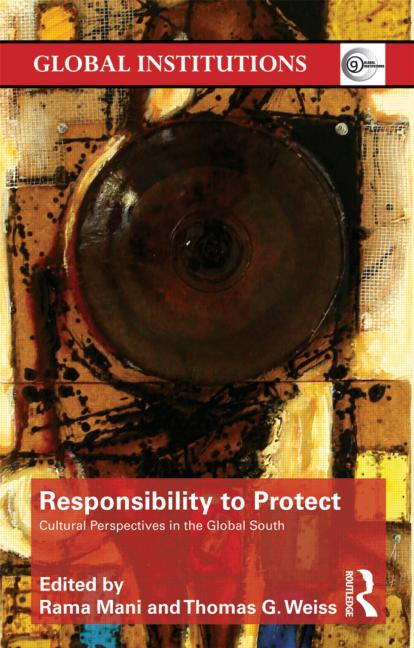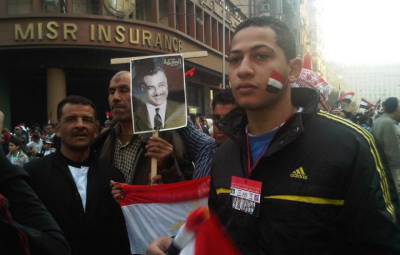What Obama didn’t say about Iraq
The Iraq war was not a success. It was a failure. A dismal failure, and Western governments should learn from their mistakes. Of course, nobody can deny the brutal crimes that Saddam Hussein was responsible for. The savage attacks against the Kurdish population in Northern Iraq, the invasion of Kuwait and the terrorising of innocent civilians in the town of Dujail after an assassination attempt serve as prime examples of the sadistic nature of the Iraqi dictator. The world is definitely safer without him, but this in no way outweighs what the world, and in particular the Iraqi people, have had to give up. Transparency International’s most recent Corruption Perception Index (measured in 2010) ranked Iraq as having 175th most …

On ‘Responsibility to Protect: Cultural Perspectives in the Global South’
At the 2005 UN World Summit, more than 170 Heads of State and Government accepted three interlinked responsibilities, which together constitute the principle of ‘responsibility to protect’ (R2P). First, States accepted the responsibility to protect their own populations from genocide, war crimes, ethnic cleansing and crimes against humanity. Second, States promised to assist each other in fulfilling their domestic protection responsibilities. And third, the international community took on a collective responsibility to react, in a timely and decisive manner, if particular States are manifestly failing to protect their populations from the abovementioned mass atrocity crimes. Despite a quite remarkable normative development (see for example the frequent invocation of R2P in relation to the recent Libya crisis), this R2P principle is …
How the ICC can help Kenya
The ongoing International Criminal Court trial into the so-called “Ocampo Six” is a reminder of how raw the violence around the 2007 Kenyan election remains. It now seems likely that the verdicts on the six won’t be announced until next year – until which time Uhuru Kenyatta, one of those accused of inciting ethnic violence, remains in the post of Deputy Prime Minister. Over 1100 were killed, and had the coalition agreement not come when it did, the spectre of fully-blown Civil War was a genuine possibility. The international community was in shock, having traditionally viewed Kenya as one of the least violent countries in Africa. Really, they shouldn’t have been. A brief history lesson into how Daniel Arap Moi …

The Myth of ‘Sixty Years of Oppression’
Reem Abou-El-Fadl has recently published an article in Al-Akhbar English newspaper entitled ‘From Nasser to Tantawi: The Myth of “Sixty Years of Oppression”‘. The article considers the connections that have been made in Egypt between the July 1952 Revolution, launched by the Free Officers movement, and the January 2011 Revolution, launched by this year’s popular uprising in Egypt. The article acknowledges that military officials first came into government after the July Revolution, but it goes on to explore the deceptive myth of ‘sixty years of oppression’ since, which has been heard often in recent months. ‘Yet today’s generals are protecting an entirely different set of interests from those important to the Free Officers. They have presided over months of delay …

Russia-Georgia Relations
There is a lot of talk around Russia-Georgia relations these days. One venue is the current “Geneva Process,” established in 2008 to attempt to sort out the mess created by the Georgian-Russian war. After seventeen meetings, there is no evidence of any significant progress. There is also a substantial array of informal processes involving all kinds of well-intentioned people from London, Washington, Georgia and Russia. They haven’t had any discernible impact either. Outsiders have a substantial interest in the normalization of the bilateral relationship. The situation between Georgia and Russia complicates the Western reset of relations with the Russian Federation. The unresolved conflict between the two obstructs Russia’s accession to the World Trade Organization. Although the situation on the ground …
Bin Laden vs. Kadyrov: the war on terror and Russian identity construction
Iver Neumann, an authoritative researcher of Russian affairs, claimed in his central work ‘Russia and the idea of Europe: a study in identity and international relations’, that Europe has always been an important ‘Other’ when it comes to how Russia constructs and sustains its identity. Whilst this still seems to be the case, it could be argued that Europe is only one Other in the story of Russia’s constant invention and reinvention of its own identity. After World War II, Russia’s favourite choice of Other became split. Europe became (and remains) the preferred Other in relation to Russia’s view of its internal organisation – state, society, and culture. However, the United States has taken the prime position in relation to …
Bin Laden Location is Humiliation for Pakistan
Whichever way you look at it, the discovery and killing of Osama bin Laden in a comfortable house in Abbottabad within walking distance of Kakul (Pakistan Military Academy) and a short drive from the nation’s capital Islamabad, constitutes an abject humiliation for Pakistan. The options are limited. Either the Pakistani authorities did not know that bin Laden was there, apparently for several years. In which case their incompetence is so colossal that it should cause widespread panic, except that it beggars belief. Or the Pakistani authorities knew of bin Laden’s presence in their midst. In which case the worst cynics have been proved right. There are some tell-tale pointers as to which of these is more likely to be true. …
Justice and Gadhafi’s Fight to the Death
Everyone wants to see wrongdoers punished. But safe exile for bad rulers is often the least worst option. The violence in the Ivory Coast that has left more than 1,300 dead since last November’s presidential election may soon be coming to an end. Incumbent President Laurent Gbagbo, who refused to cede power after losing in the polls to Alassane Ouattara, is reportedly negotiating the terms of his surrender after a week-long offensive by pro-Ouattara forces. What’s puzzling about how this conflict is ending is why Gbagbo didn’t leave sooner, especially after African Union leaders had offered him immunity several times if he agreed to go into exile in South Africa. With 80% of Ivorian territory taken by pro-Ouattara forces and …









